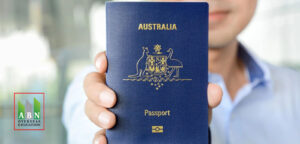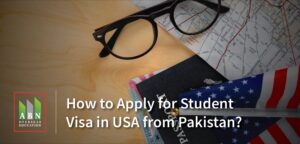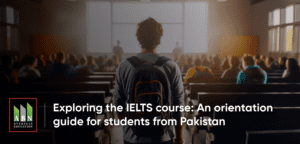Basic Eligibility Checks
Students from Pakistan can apply for a UK student visa if they meet these critical criteria:
1. Admission to a UK institution for a full-time course.
2. Sufficient funds to cover tuition and living expenses.
3. English language proficiency.
4. Possible requirement for a tuberculosis test.
5. Confirmation of Acceptance for Studies (CAS) from the institution.
6. Intent to leave the UK after studies.
Applicants should carefully review the UKVI requirements and those of their chosen institution before applying.
Applying for a UK student visa from Pakistan involves several steps
1. Select a Course and Institution: The first step in the educational process is to choose the course and the institution you wish to attend. Make sure the university you have selected provides courses that qualify for student visas and is a licensed Tier 4 sponsor.
2. Get an Offer and Confirmation of Acceptance for Studies (CAS): Your university will provide a CAS as soon as you are accepted into a course. You will require this specific reference number to submit your visa application.
– Financial Requirements: You must demonstrate that you have the resources necessary to pay for both your living expenses and tuition. Providing bank statements or letters of sponsorship may be required for this.
– English Language Proficiency: You might need to take an authorized language exam, such as the IELTS, to demonstrate your English language ability.
– Test for Tuberculosis: You might be required to have a tuberculosis (TB) test from an approved facility, depending on your country of residency.
– Attend the Interview (If required): You can occasionally be asked to give an interview. Typically, the purpose of the interview is to determine your financial support needs and your plans for studying in the UK.
3. Finish the Online Application: To fill out the online application for a Tier 4 General Student Visa, go to the UK government’s official website (UK Visas and Immigration). To proceed, you must register, complete the necessary fields, and provide supporting files.
4. Biometric Appointment: Following the online application process, you must arrange a biometric appointment at a Pakistani Visa Application Center (VAC). You will be required to provide a picture and your fingerprints during this visit.
5. Pay the Visa Fee: As part of the application process, pay the visa application fee online. Depending on your location and the type of visa you need, the cost may change.
8. Await a Decision: You will have to wait for the outcome of your visa application after submitting it and, if necessary, showing up for the biometric appointment. Usually, this takes a few weeks.
9. Get Your Visa: If your application is granted, you’ll get a passport with a visa vignette, or sticker, on it that will permit you to enter the UK as a student.
There are rules in place in the UK for students’ employment hours and salary while they are enrolled in classes.
Hours of Work:
Term Time: Full-time course students are often permitted to work up to 20 hours per week during term time.
This limitation was put in place to make sure that students could manage their time between their academic work and employment obligations.
Outside Term Time (Vacations): Students are generally allowed to work full-time, or up to 40 hours a week, during official university breaks or vacations.
This gives students the chance to put in more hours at work and make more money while taking time off from school.
Pay Scales: The National Minimum Wage (NMW) establishes the lowest hourly wage that firms are required to pay their employees.
The worker’s age and whether or not they are an apprentice determine the NMW. Which is 11.44 Pounds per hour
National Insurance and Income Tax: Students who make more than a particular amount of money must pay income tax and national insurance contributions (NICs).
Nonetheless, there is typically a tax-free allowance, which implies that if students’ income is below a specific level, they might not be required to pay taxes on it.
Employers are in charge of taking income taxes and NICs out of workers’ paychecks and making sure they are paid.
In the UK, there are several types of visas available for individuals wishing to enter the country for various purposes.
Visas for visitors: Standard Visitor Visa: For anyone travelling to the UK for private medical treatment, business, pleasure, or tourism.
Family Visitor Visa: To travel to the UK to see partners or family who have made their home there.
Authorized Paid Engagement Visa: This type of visa is intended for people who have been invited to the UK for brief paid engagements, including lecturers, examiners, or artists.
Visas for Work: For skilled individuals who have received a job offer from a UK business and have secured a sponsorship license, there is the Tier 2 (General) Visa.
Study Permits: Tier 4 (General) Student Visa: Available to anyone 16 years of age or older who wants to pursue a full-time course of study at a recognized institution in the UK.
Children between the ages of 4 and 17 who want to attend an independent school in the UK may apply for a Tier 4 (Child) Student Visa.
Visas for family: Spouse or Partner Visa: Available to anyone who is married to a UK citizen or permanent resident or who is in a civil partnership with one.
The Fiancé(e) or Proposed Civil Partner Visa is intended for persons who want to tie the knot or form a civil partnership with a UK citizen or permanent resident.





















